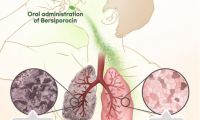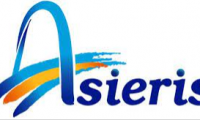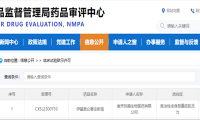-
Rezzayo approved to treat adult patients with invasive candidiasis
- Source: drugdu
- 156
- February 1, 2024
-
EMA Grants Bersiporocin Orphan Drug Designation
- Source: https://www.pharmexec.com/authors/mike-hollan
- 101
- January 31, 2024
-
Key Trends from the 2024 J.P. Morgan Healthcare Conference
- Source: drugdu
- 86
- January 27, 2024
-
IASO Bio’s IND application for new autoimmune indication of Equecabtagene Autoleucel Injection approved
- Source: drugdu
- 86
- January 27, 2024
-
FDA Warns Drugmakers of Additional Cancer Risks Associated with CAR T-Cell Therapy
- Source: drugdu
- 96
- January 26, 2024
-
Eli Lilly Sounds Off as Early Data Show How Gene Therapy Can Restore Hearing
- Source: drugdu
- 84
- January 26, 2024
-
Major update of the SME user guide
- Source: drugdu
- 82
- January 26, 2024
-
Gilead’s Tecartus gets revised safety demand amid FDA’s push for CAR-T boxed warnings
- Source: drugdu
- 87
- January 26, 2024
-
FDA Calls for New Safety Warning for the Class of CAR T Cancer Therapies
- Source: drugdu
- 89
- January 25, 2024
your submission has already been received.
OK
Subscribe
Please enter a valid Email address!
Submit
The most relevant industry news & insight will be sent to you every two weeks.













